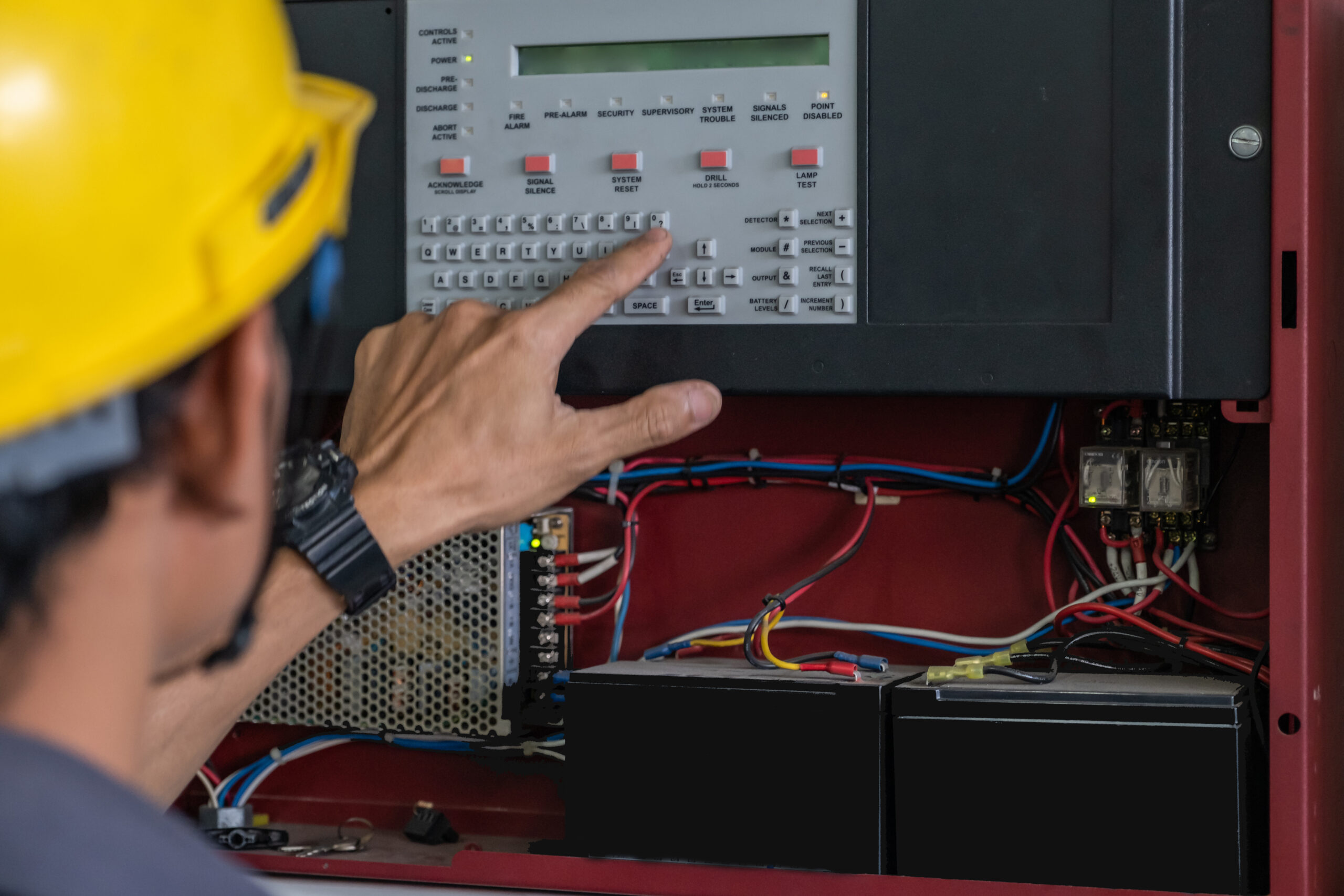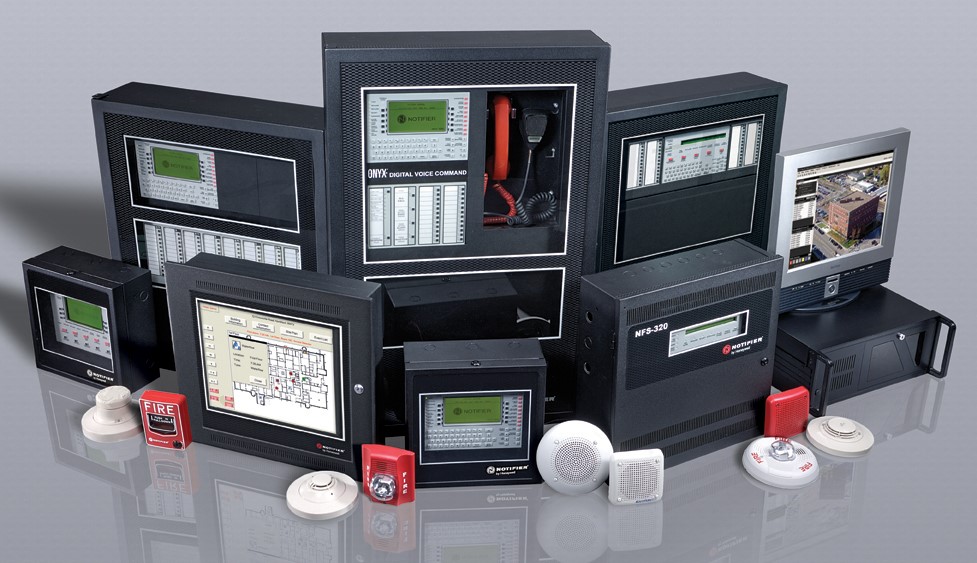
A fire alarm system is a critical component of a building’s fire and life safety solutions. Fire alarms save lives, help prevent major property damage, increase evacuation time, and trigger quicker emergency response.
Given the many functions fire alarm systems provide, it’s a complex yet extremely important consideration for contractors, building managers, and other professionals tasked with making sure these systems are up to code and ready for service.
To help make sense of it all, LVC Companies offers a whirlwind tour of fire alarm systems commonly used in commercial, industrial, educational, and healthcare settings. We’ll cover codes, fire alarm system components, what these systems they do, and why they’re so important to protecting people and property.
Fire Alarm System Components
A fire alarm system typically includes the following components:
Detectors: Fire detectors are the devices that detect the presence of smoke or heat. They come in different types such as smoke detectors, heat detectors, and combination detectors.
Control Panel: The fire alarm control panel or control unit is the central hub of the fire alarm system. It receives signals from the detectors and activates the alarm and notification devices.
The fire alarm panel also controls critical fire and life safety functions such as elevator recall, HVAC/mechanical systems, and smoke control, and can monitor ancillary panels, kitchen systems, temperature gauges, fire pump condition, and more. The panel is tied to a dedicated 120-volt emergency circuit backup up with 24-hour batteries.
The fire alarm panel also displays different conditions including Alarm, Trouble, and Supervisory. An Alarm condition indicates an immediate threat to life or property. A Trouble signal means there is a fault or issue with the system, such as a break in an initiating device circuit. When an issue arises with a system monitored by the fire alarm panel—such as a closed sprinkler valve—a Supervisory signal is triggered.
Alarm and Notification Devices: Alarm and notification devices which may be activated by the fire alarm panel are used to alert building occupants of a fire. These can include horns, bells, speakers, and strobe lights.
Initiating Devices: Initiating devices are used to initiate a fire alarm. These can include manual pull stations, heat detectors, and smoke detectors.
Power Supply: A fire alarm system requires a reliable power supply. This can be provided by a backup battery system, a generator, or an uninterrupted power supply (UPS).

Fire Alarm System Codes
Fire alarm systems must comply with codes and standards set by the National Fire Protection Association (NFPA) and local building codes. The most referenced codes for fire alarm systems are NFPA 72 and the International Fire Code (IFC).
Importance of Fire Alarm Systems
Commercial fire alarm systems play a critical role in protecting building occupants and property from the dangers of fire. A properly designed and installed fire alarm system can:
Detect a fire early: Early detection of a fire is critical to allow for an orderly evacuation of the building.
Alert occupants: Alarm and notification devices ensure that occupants are aware of a fire, allowing them to evacuate the building safely.
Facilitate fire department response: A fire alarm system can be linked to a fire department or monitoring station, allowing for a faster response time.
In conclusion, properly designed, installed, and maintained fire alarm systems can save lives and minimize property damage in the event of a fire. Building owners and managers should ensure that their fire alarm systems comply with relevant codes and standards and are regularly tested, inspected, and maintained.
LVC provides complete fire alarm systems support including consultation, design, installation, testing and service (including 24-hour emergency service). We work with property owners, general contractors, electrical contractors, and property managers on all types of projects, from new construction to remodels, retrofits, and tenant improvements.
Our technology solutions include analog addressable fire alarm systems and very early smoke detection apparatus (VESDA). Our manufacturer partners and product lines include NOTIFIER by Honeywell, Siemens, Rath, Honeywell Silent Knight, and ONYXWorks.
With more than 40 years of experience providing a full range of installation, inspection, monitoring, and maintenance services for fire, life safety, security, and communications systems, LVC Companies is your first and best choice for a full-service fire alarm system provider. Contact us today for more information!

